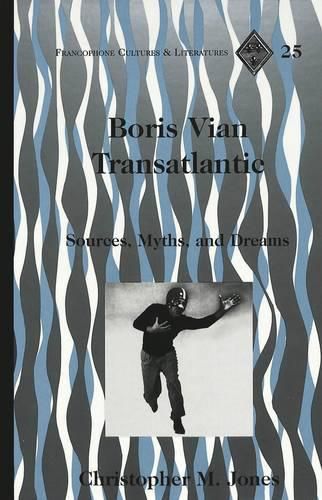Readings Newsletter
Become a Readings Member to make your shopping experience even easier.
Sign in or sign up for free!
You’re not far away from qualifying for FREE standard shipping within Australia
You’ve qualified for FREE standard shipping within Australia
The cart is loading…






Boris Vian lived during a period of redefinition in France, from the instability of the Thirties, through the German Occupation, then into the friendly if overwhelming presence of the American liberators. Vian resisted identification with the movements now associated with mid-century French literary and intellectual history - surrealism, existentialism, the absurd - while creating a multifaceted oeuvre that owed and contributed something to them all. This study concentrates, however, on the importance of American influences on Vian’s extensive jazz activities and his mock translations of American noir novels under the name Vernon Sullivan. Vian personally embodied the increasingly transatlantic nature of Western culture and the melding of elite and popular forms of expression. The diverse components of this synthesis shed light on the construction of both individual and national identity in post-war France.
$9.00 standard shipping within Australia
FREE standard shipping within Australia for orders over $100.00
Express & International shipping calculated at checkout
Boris Vian lived during a period of redefinition in France, from the instability of the Thirties, through the German Occupation, then into the friendly if overwhelming presence of the American liberators. Vian resisted identification with the movements now associated with mid-century French literary and intellectual history - surrealism, existentialism, the absurd - while creating a multifaceted oeuvre that owed and contributed something to them all. This study concentrates, however, on the importance of American influences on Vian’s extensive jazz activities and his mock translations of American noir novels under the name Vernon Sullivan. Vian personally embodied the increasingly transatlantic nature of Western culture and the melding of elite and popular forms of expression. The diverse components of this synthesis shed light on the construction of both individual and national identity in post-war France.